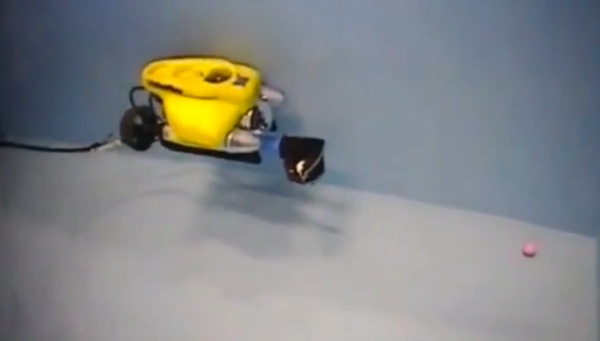This article was published in Scientific American’s former blog network and reflects the views of the author, not necessarily those of Scientific American
A new robotic hand, designed to grasp objects like a human one , is poised to go where no hand has gone before.
The Vishwa Extensor is a robotic hand operated by a person who senses what the hand feels. Connected to a diving suit or vehicle or a space suit it will allow people to work in extreme locations , including chemical, thermal or nuclear environments . This technology is a step up from bulky gloves or crude pincer like robotic manipulators.
Bhargav Gajjar of Vishwa Robotics and Massachusetts Institute of Technology thinks his invention “will shape the future of the human hand for use in extremes.” He notes that for centuries, ocean explorers had to be content with “lobster claws,” and more recently “robotic pincers mimicking lobster claw[s].” To him, the “most important part of a robotic structure in mimicking anthropomorphism and its use for exploration is the mimicry of arms and the hands on the remote vehicle. Attaching human like robotic arms and human like robotic hands will convert any autonomous vehicle into a human avatar that can grasp and feel the alien environment without endangering human life.”
On supporting science journalism
If you're enjoying this article, consider supporting our award-winning journalism by subscribing. By purchasing a subscription you are helping to ensure the future of impactful stories about the discoveries and ideas shaping our world today.
Human finger muscles and bones are weak compared with state- of- the- art robotic mechanisms and actuators. Bhargav says his device is “better than biology ”— it needs only three digits to achieve a grasp stronger than a human can make.
In space, Extensors could replace gloves on space suits. According to NASA studies, the most common injury from tight, pressurized gloves is restricted blood flow to the fingertips, which can cause astronaut’s fingernails to break or fall off entirely. For future suits, the Vishwa Extensors might replace the soft gloves at the wrist joints with hard metal Extensors that cannot be punctured, torn, damaged or breached during rough or extended missions.
The research was supported by U.S. Office of Naval Research (ONR).
More information:
